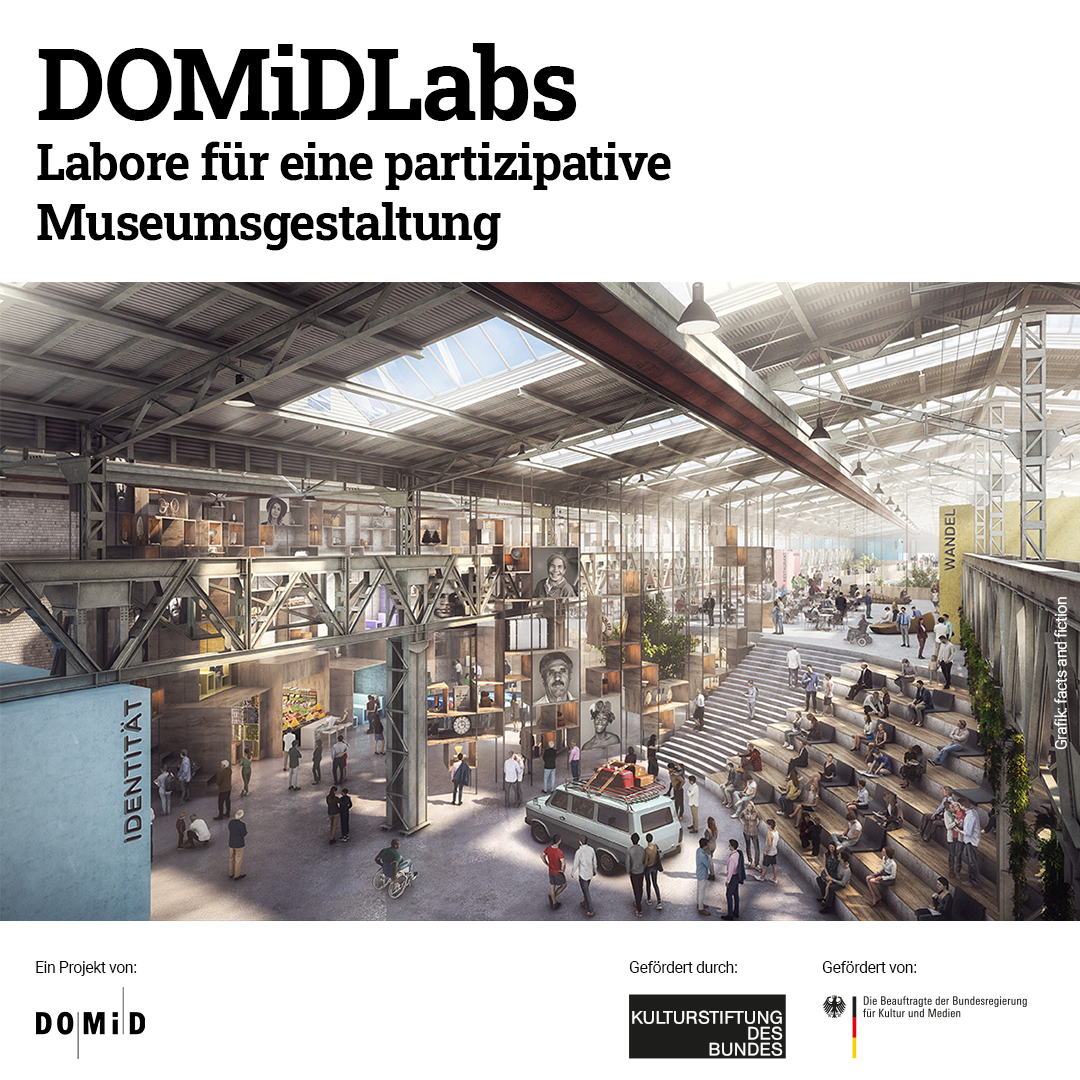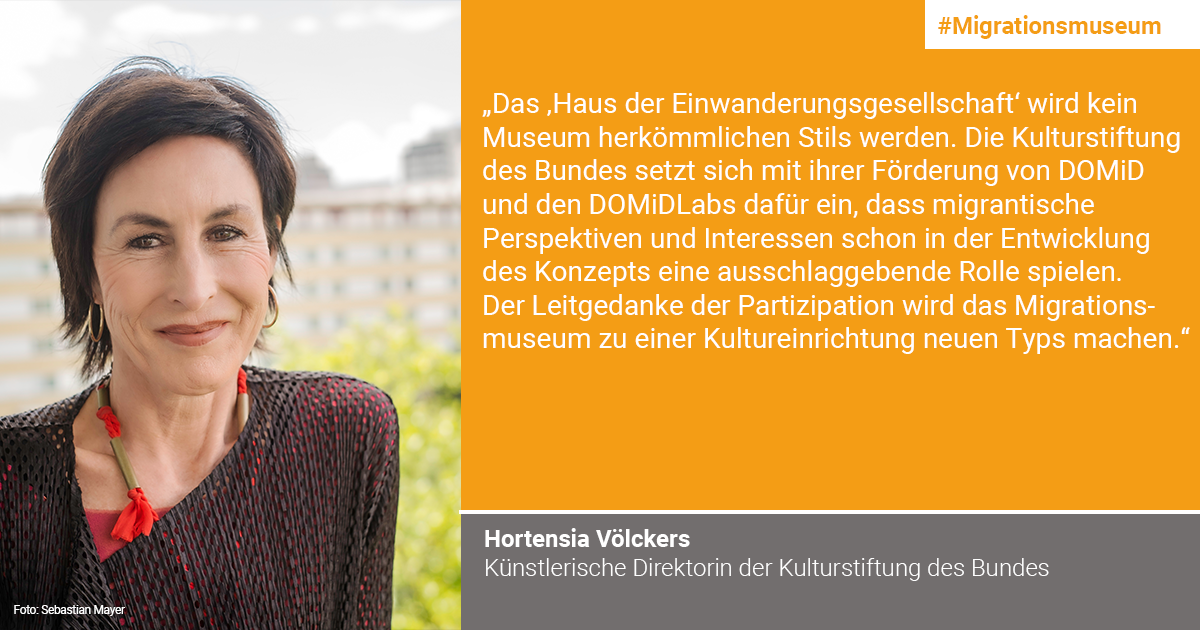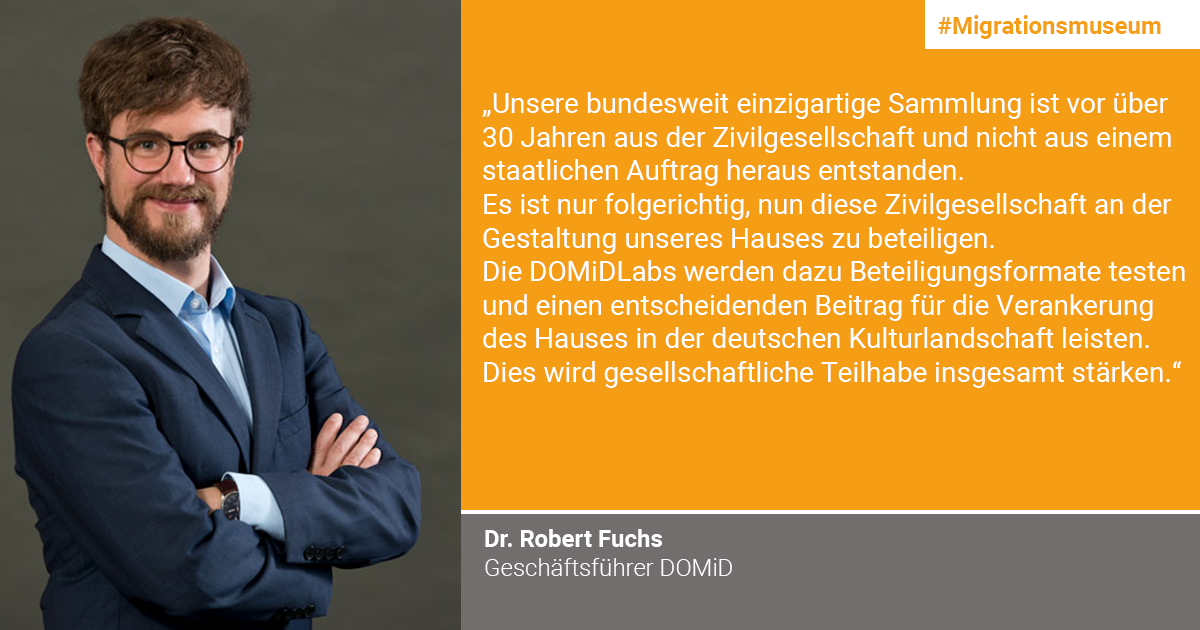
News, DOMiDLabs, Migration museum
German Cultural Foundation supports Migrationmuseum in Cologne
The museum landscape in Germany is gaining a new multi-voiced house that incorporates the concerns of citizens* from the very beginning. In the next few years, the "House of Immigration Society" (working title) in Cologne will be a migration museum with nationwide appeal. The German Federal Cultural Foundation will fund the project "DOMiDLabs – Laboratories for Participatory Museum Design" with a sum of 800,000 euros over the next three years.
DOMiD's collection tells the story of migration in Germany since 1945 with exhibits and written testimonies. In order to incorporate the diversity of social voices into the new type of museum, the principle of participation is to become a guiding principle of the museum's concept from the very beginning.
Robert Fuchs, Managing Director of DOMiD, explains: "Our collection, which is unique in Germany, was created more than 30 years ago out of civil society and not out of a state mandate. It is only logical to now involve this civil society in the design of our house. The DOMiDLabs will test participation formats for this purpose and make a decisive contribution to anchoring the house in the German cultural landscape. This will strengthen social participation as a whole."

Hortensia Völckers, Artistic Director of the German Federal Cultural Foundation: "The 'House of the Immigration Society' will not be a conventional-style museum. With its support of DOMiD and the DOMiDLabs, the Federal Cultural Foundation is committed to ensuring that migrant perspectives and interests play a decisive role in the development of the concept. The guiding principle of participation will make the Migration Museum a new type of cultural institution."
The German Federal Cultural Foundation is funding an experimental development phase until 2024, its board of trustees decided last Thursday. In so-called laboratories, the "DOMiDLabs" are to be tested, how such a participation of citizens* could look like. A transnational and multilingual team from different disciplines will implement the labs. Central questions include: How can the perspectives of contemporary witnesses or "experts of everyday life" be brought in? What kind of spatial design encourages interaction? How can a museum react flexibly to current, even conflictual debates? How can taboo topics be respectfully exhibited? The results of the laboratory phase will be directly incorporated into the museum concept.

